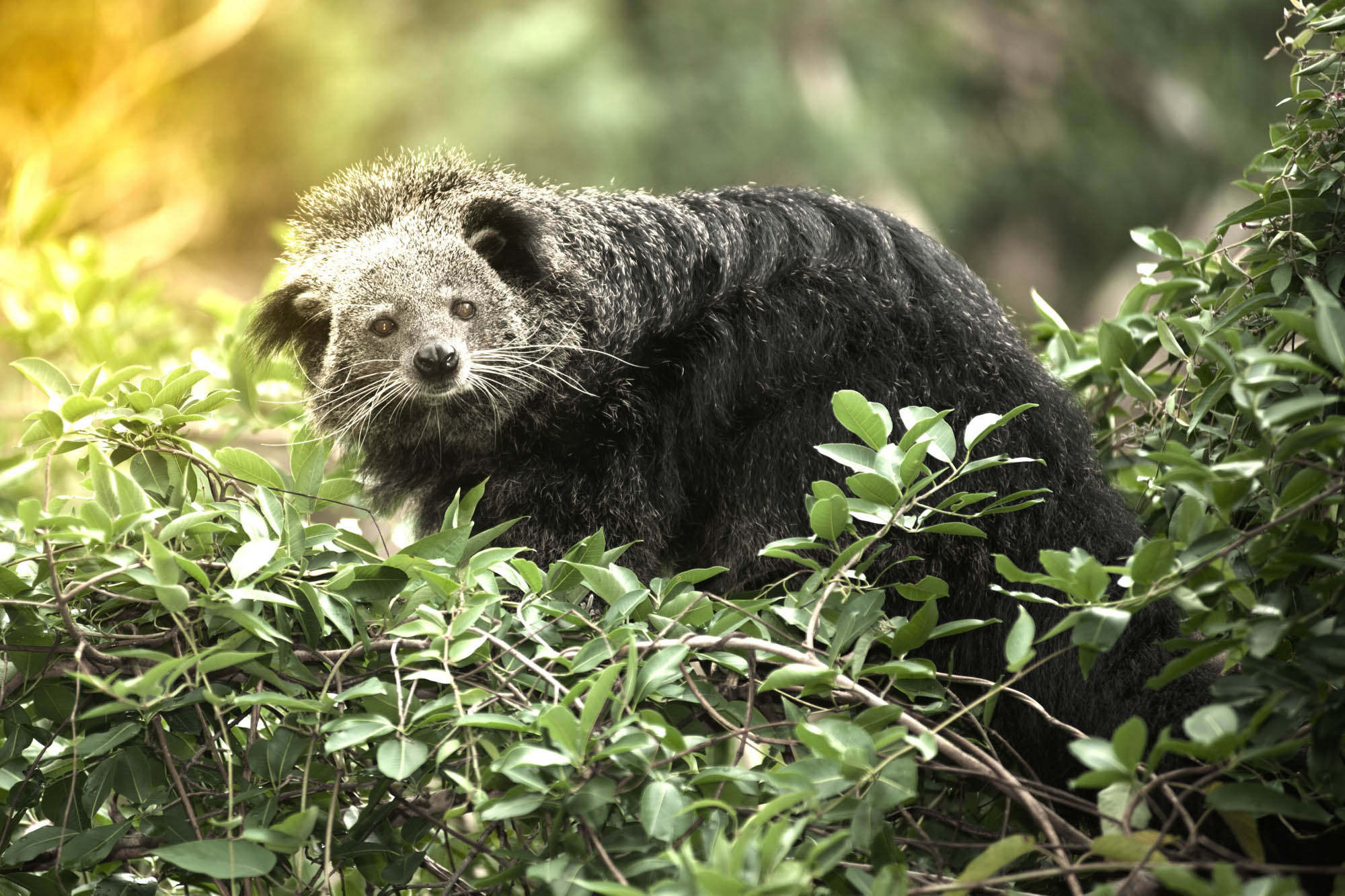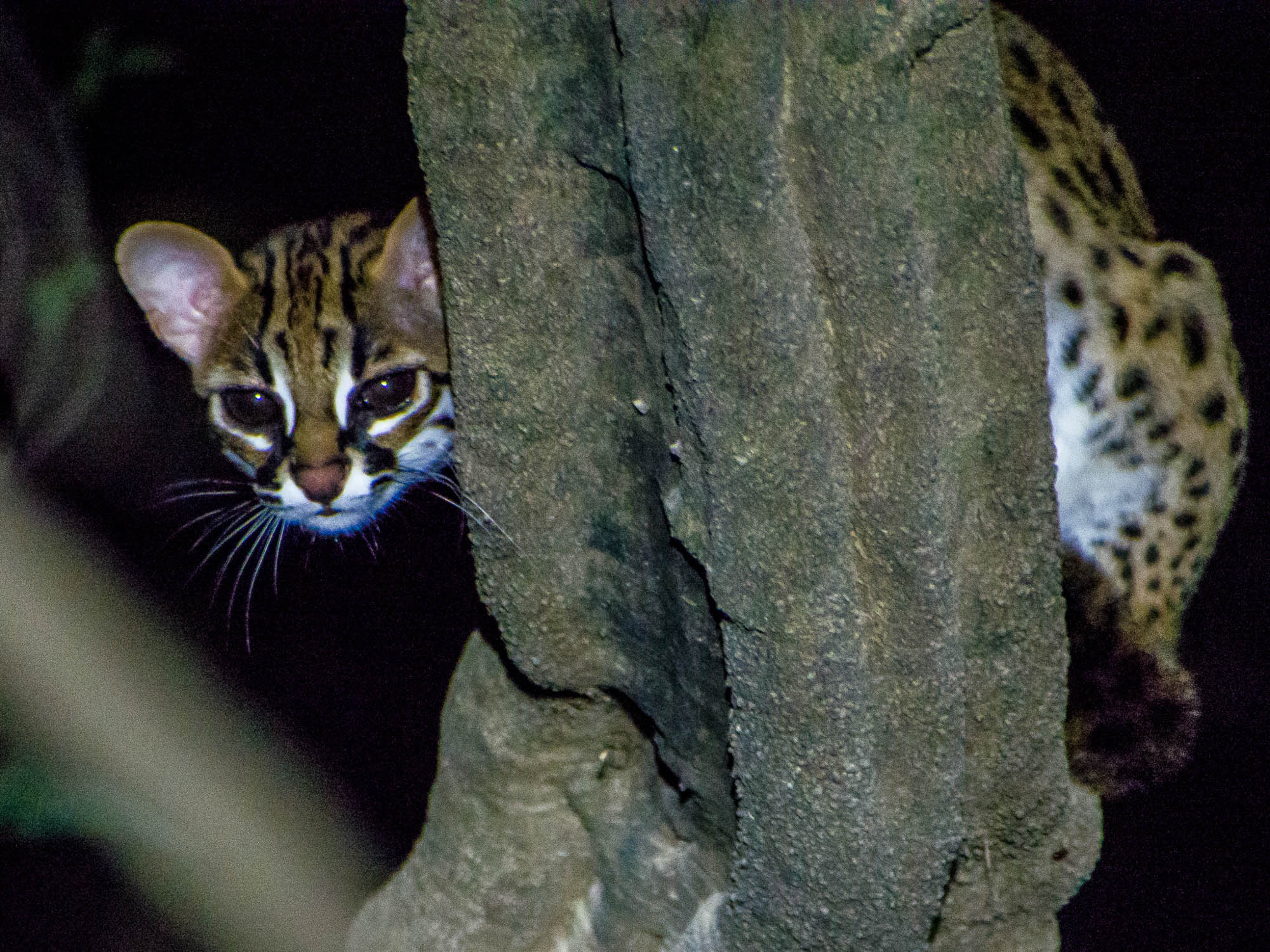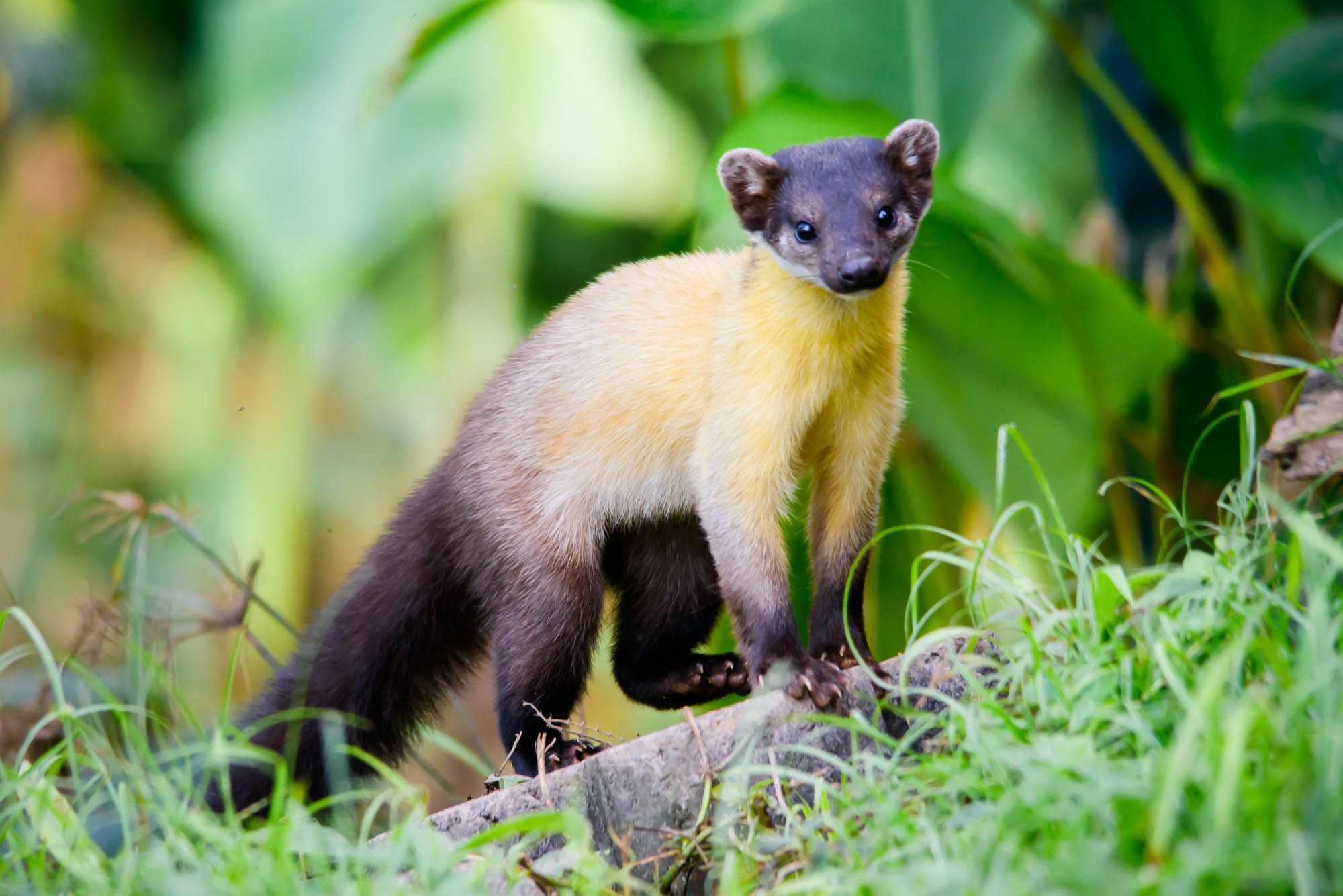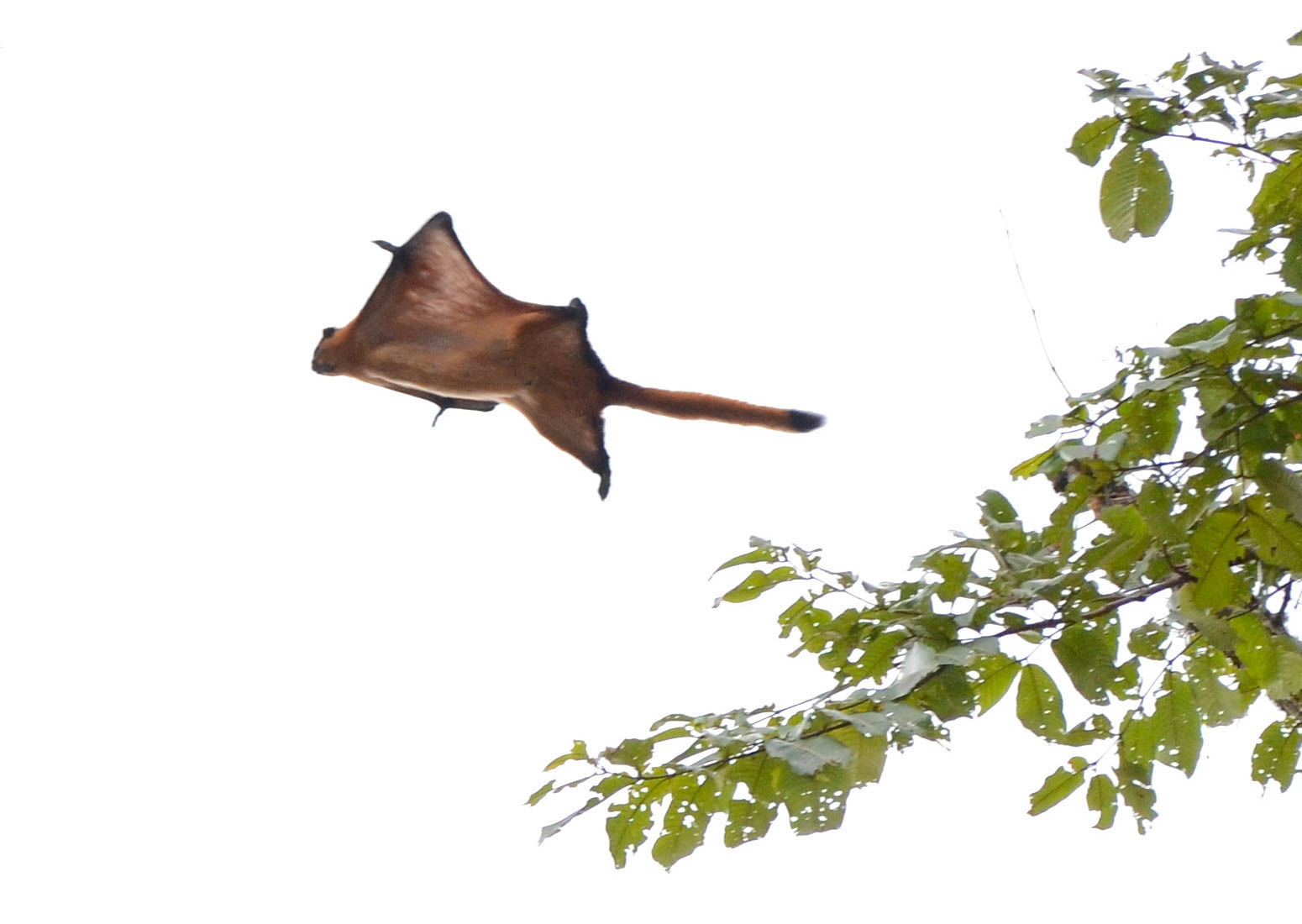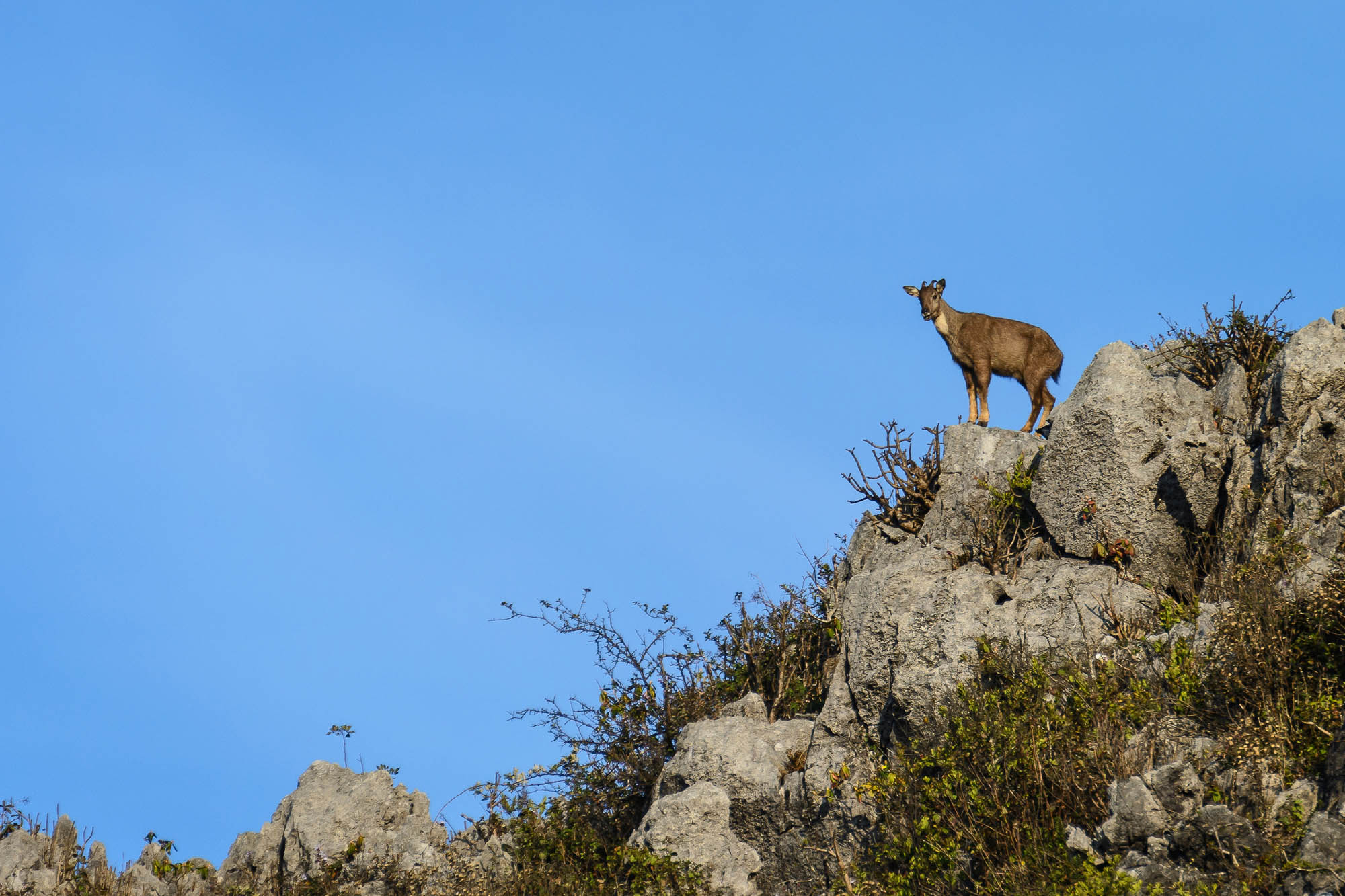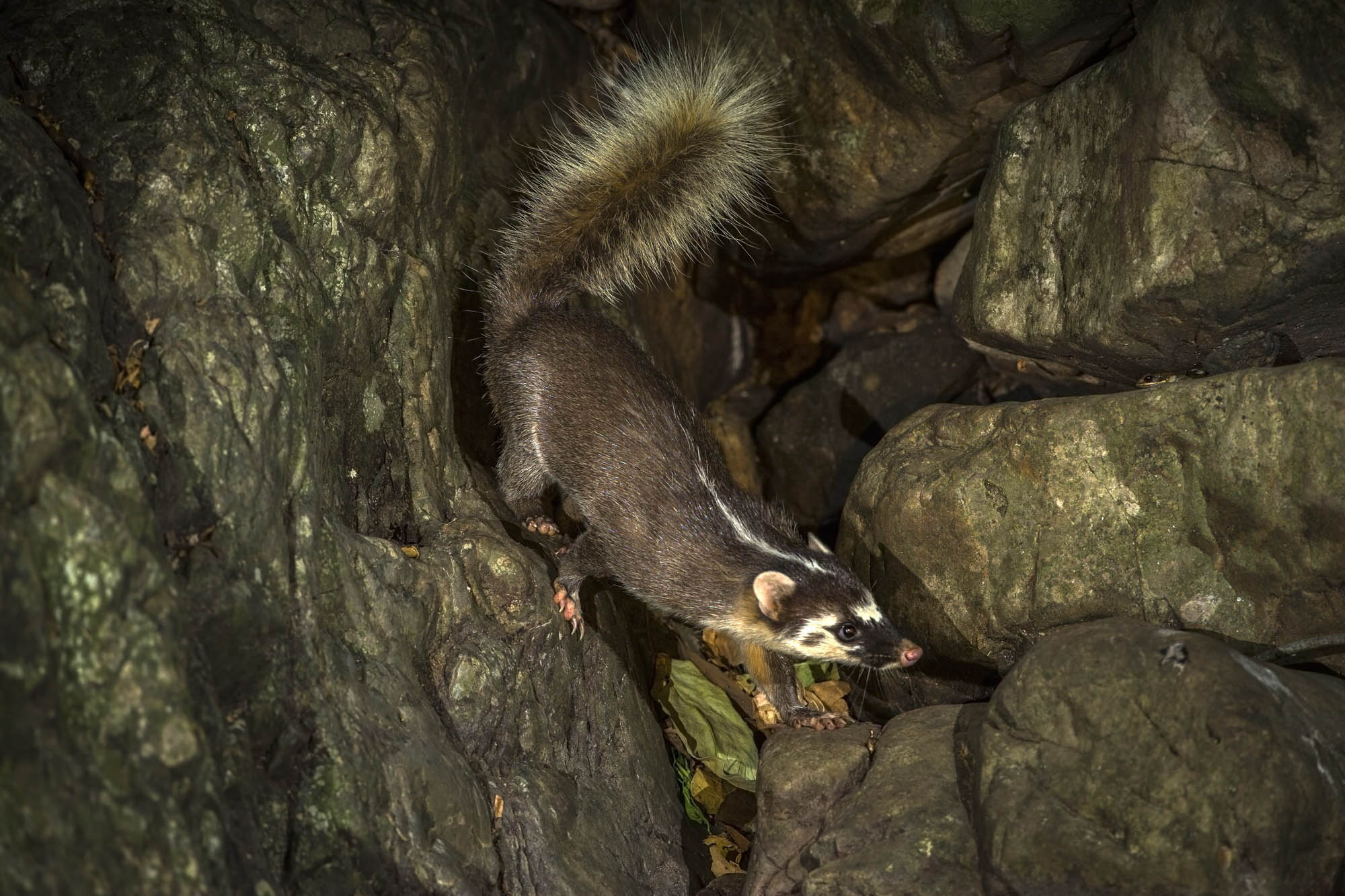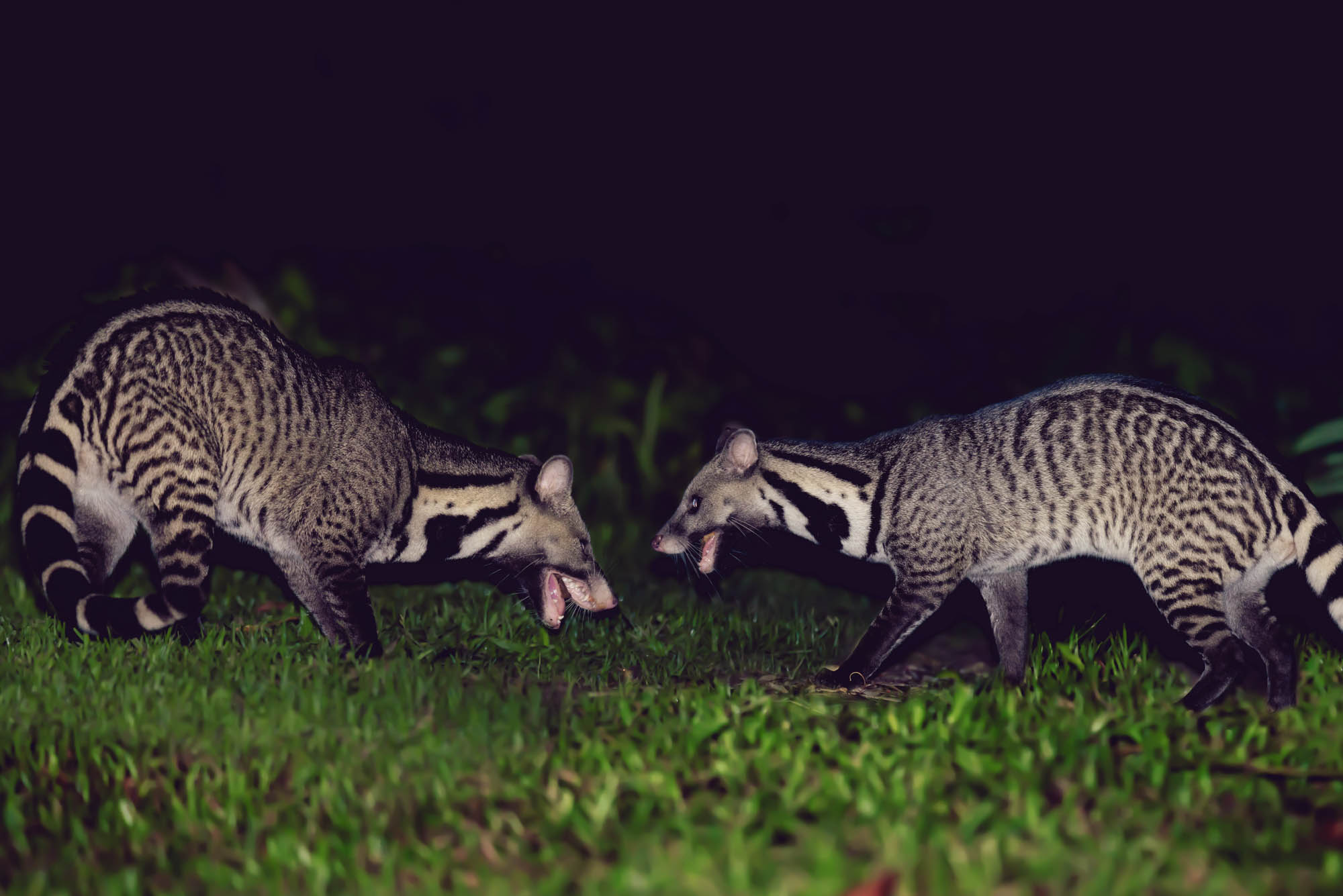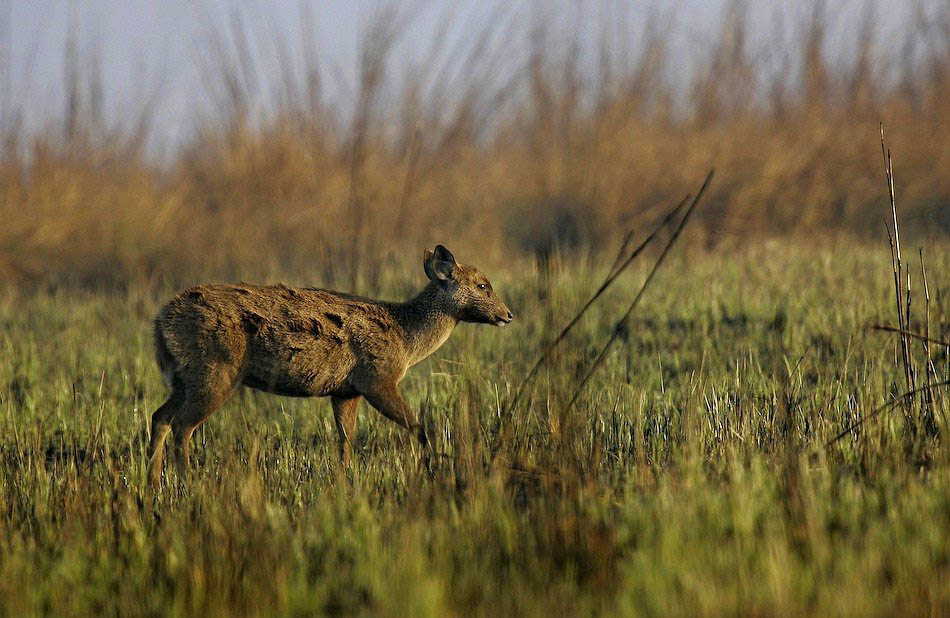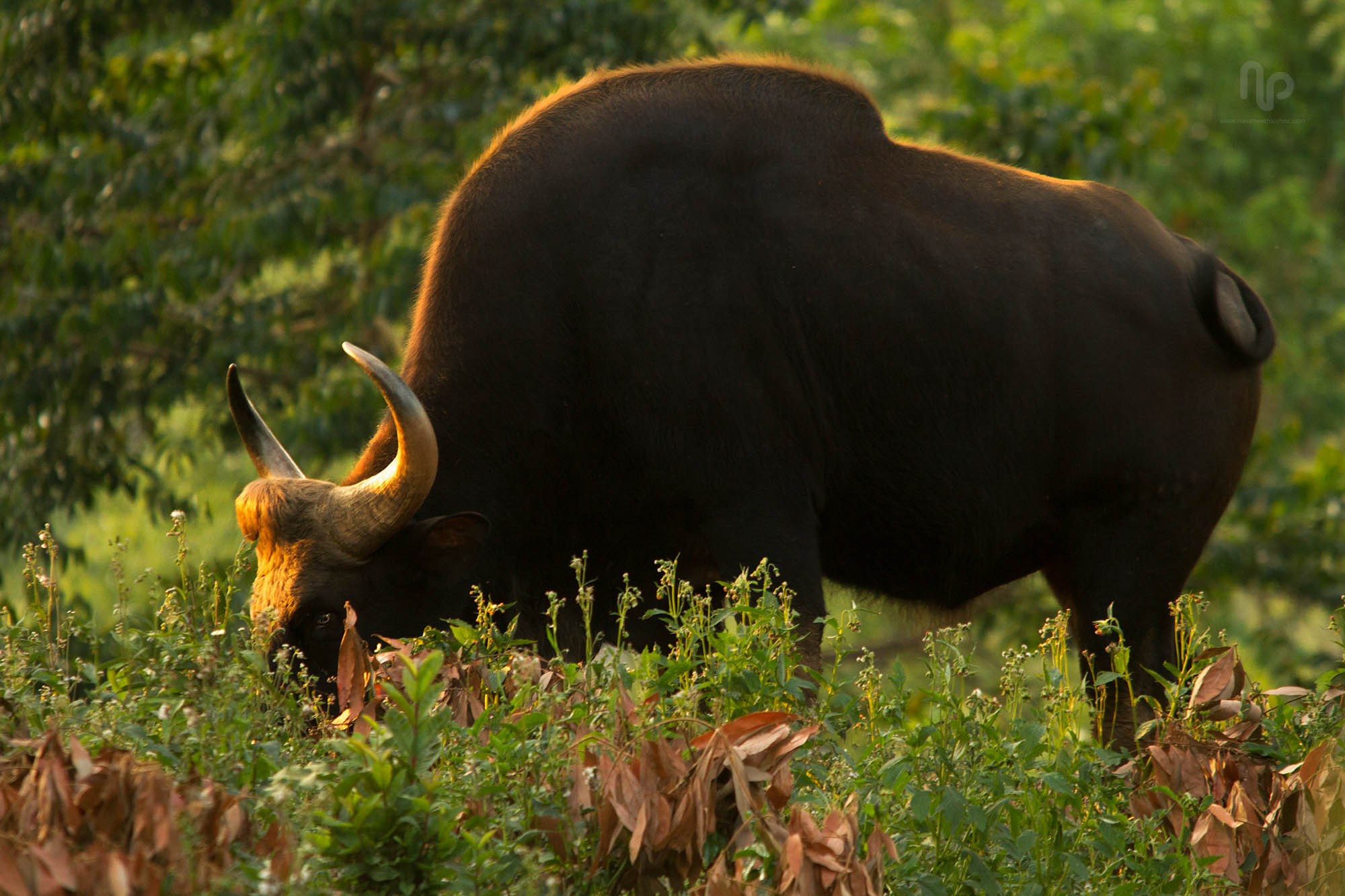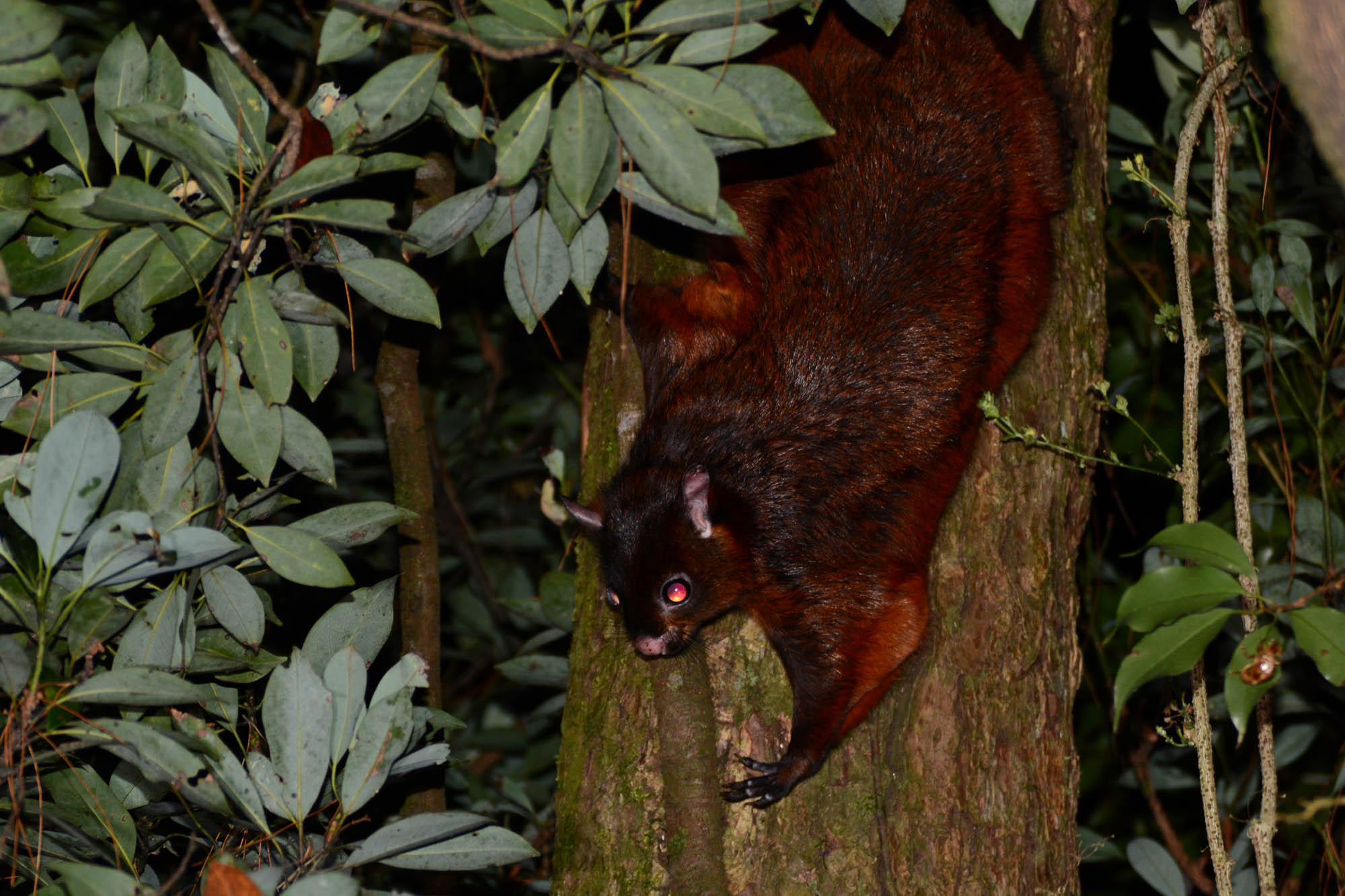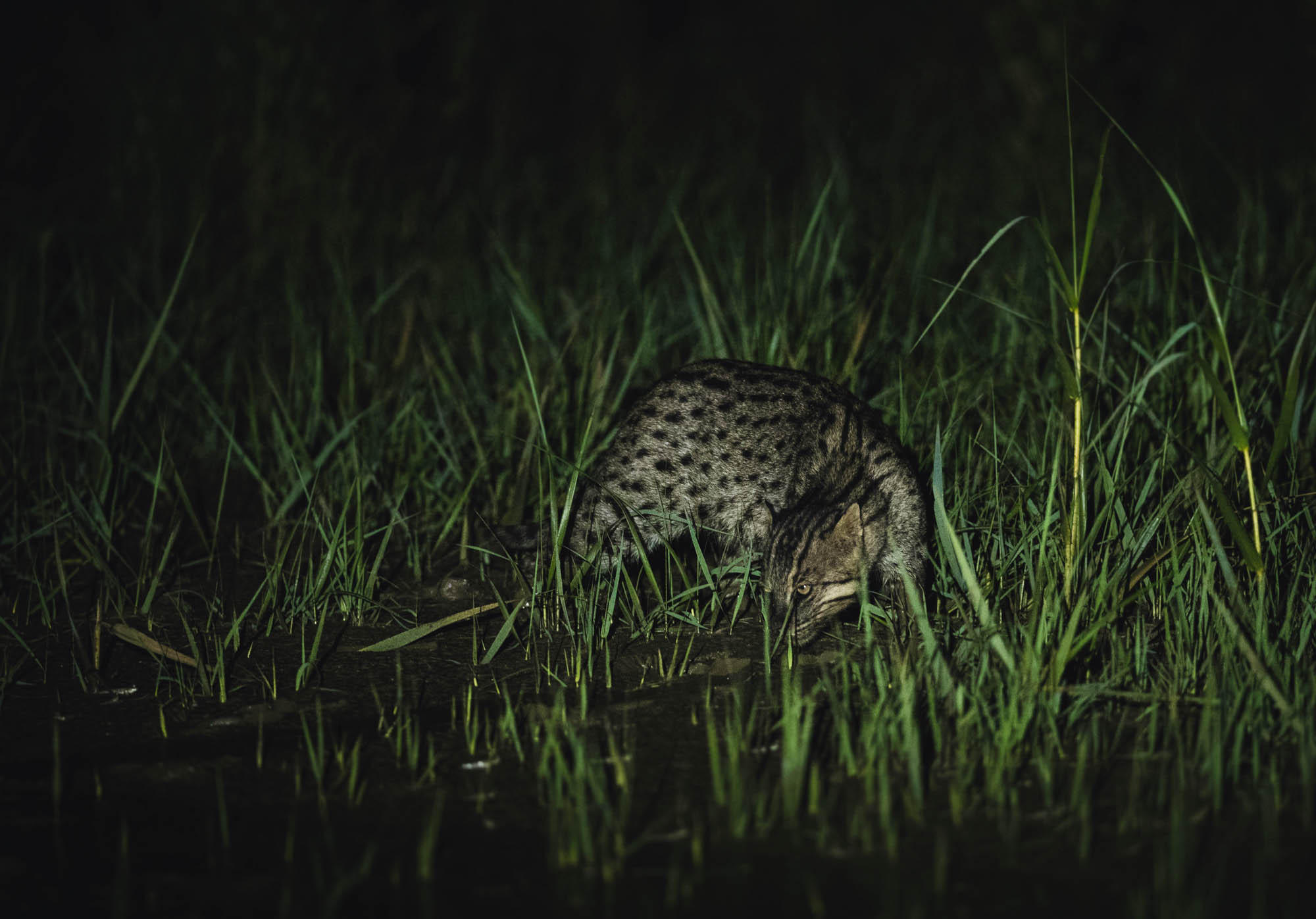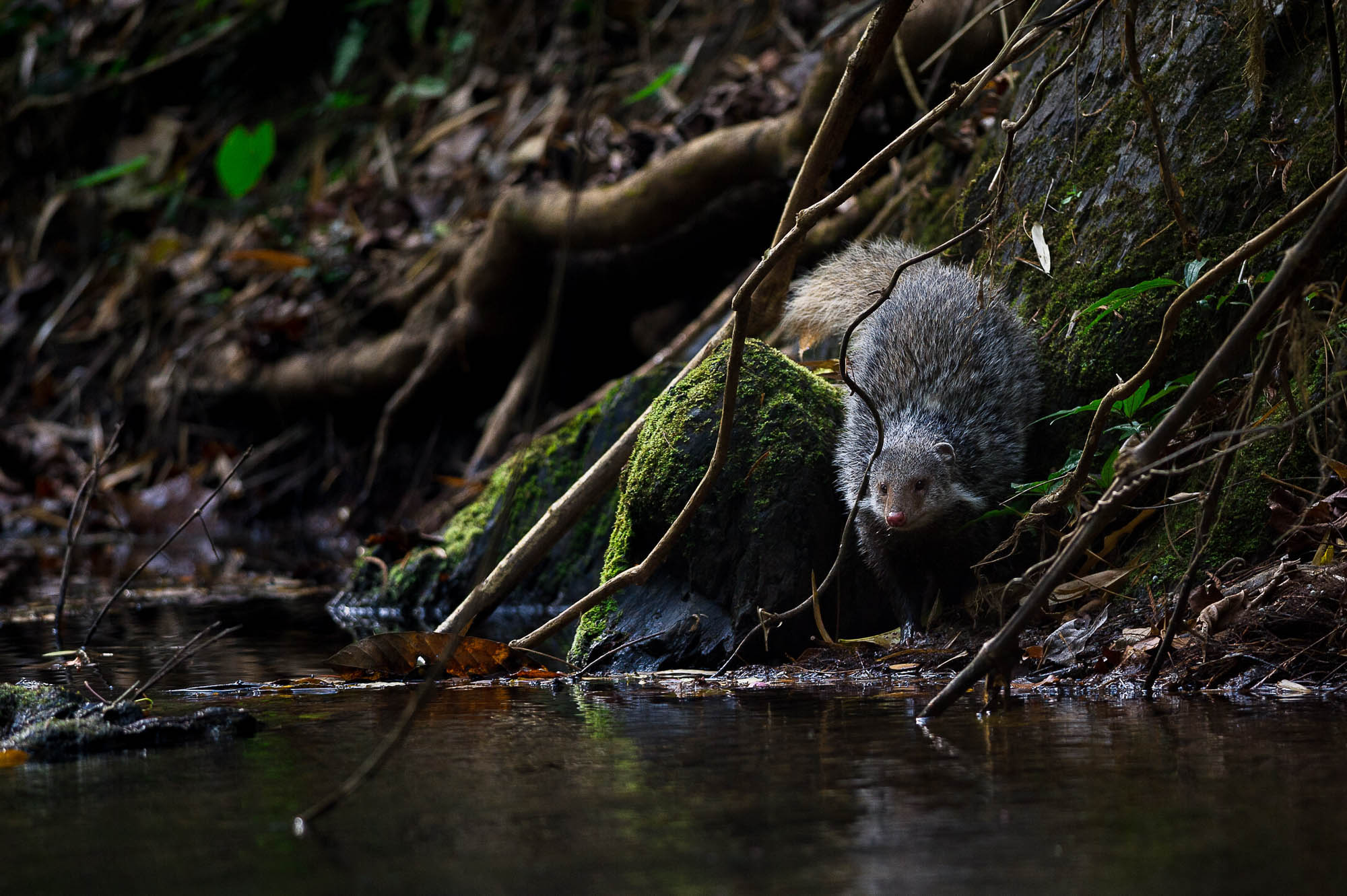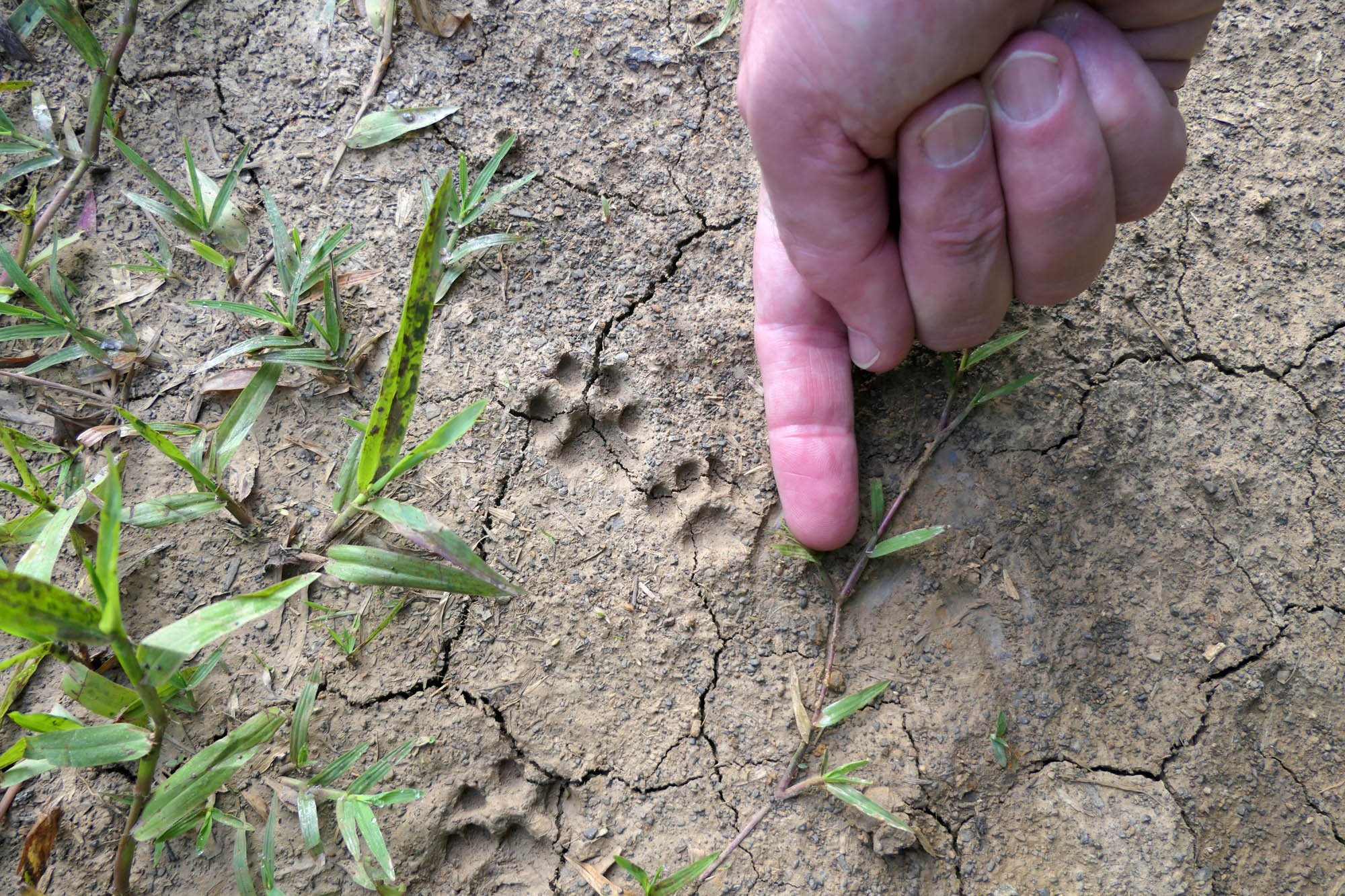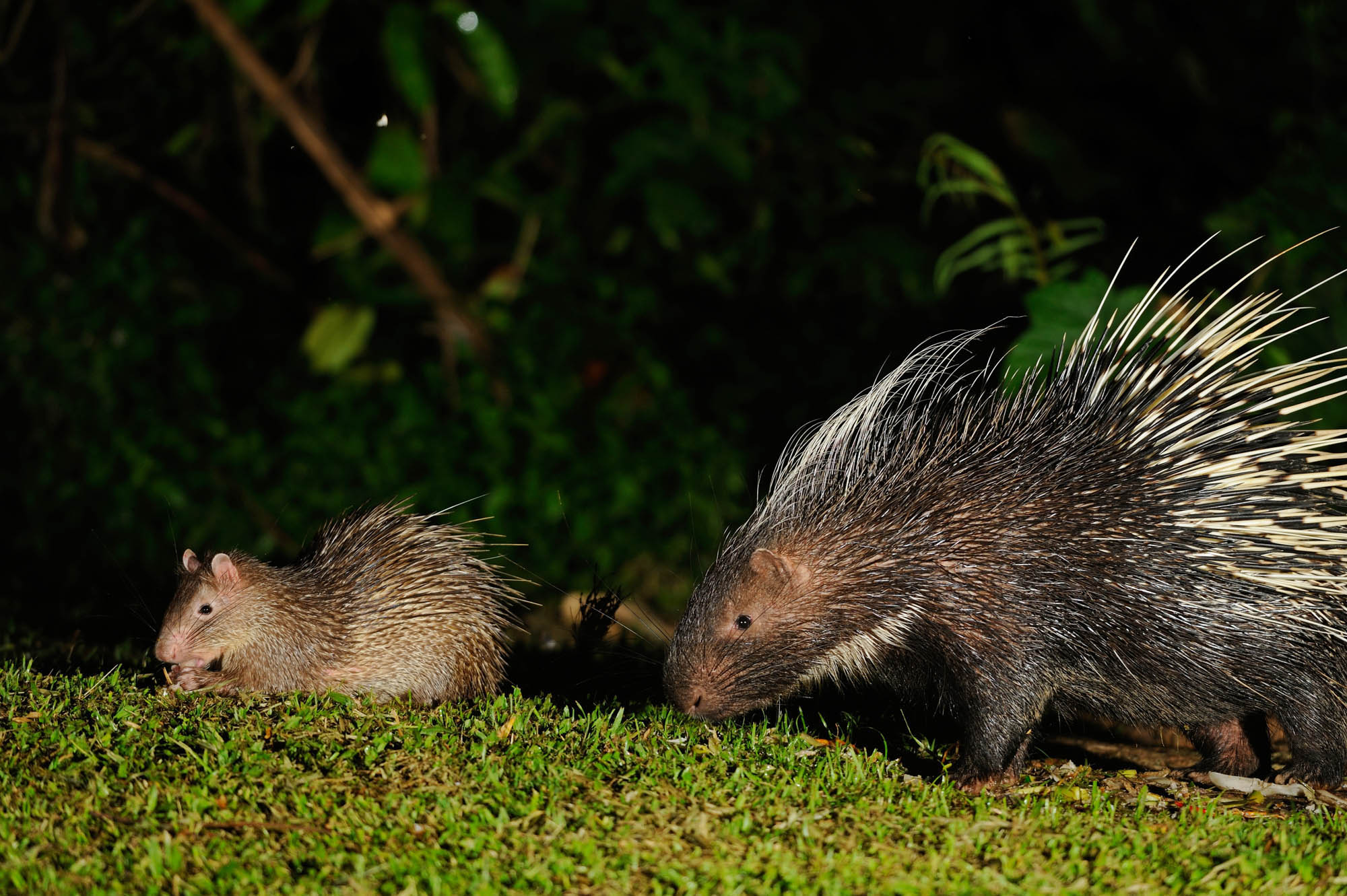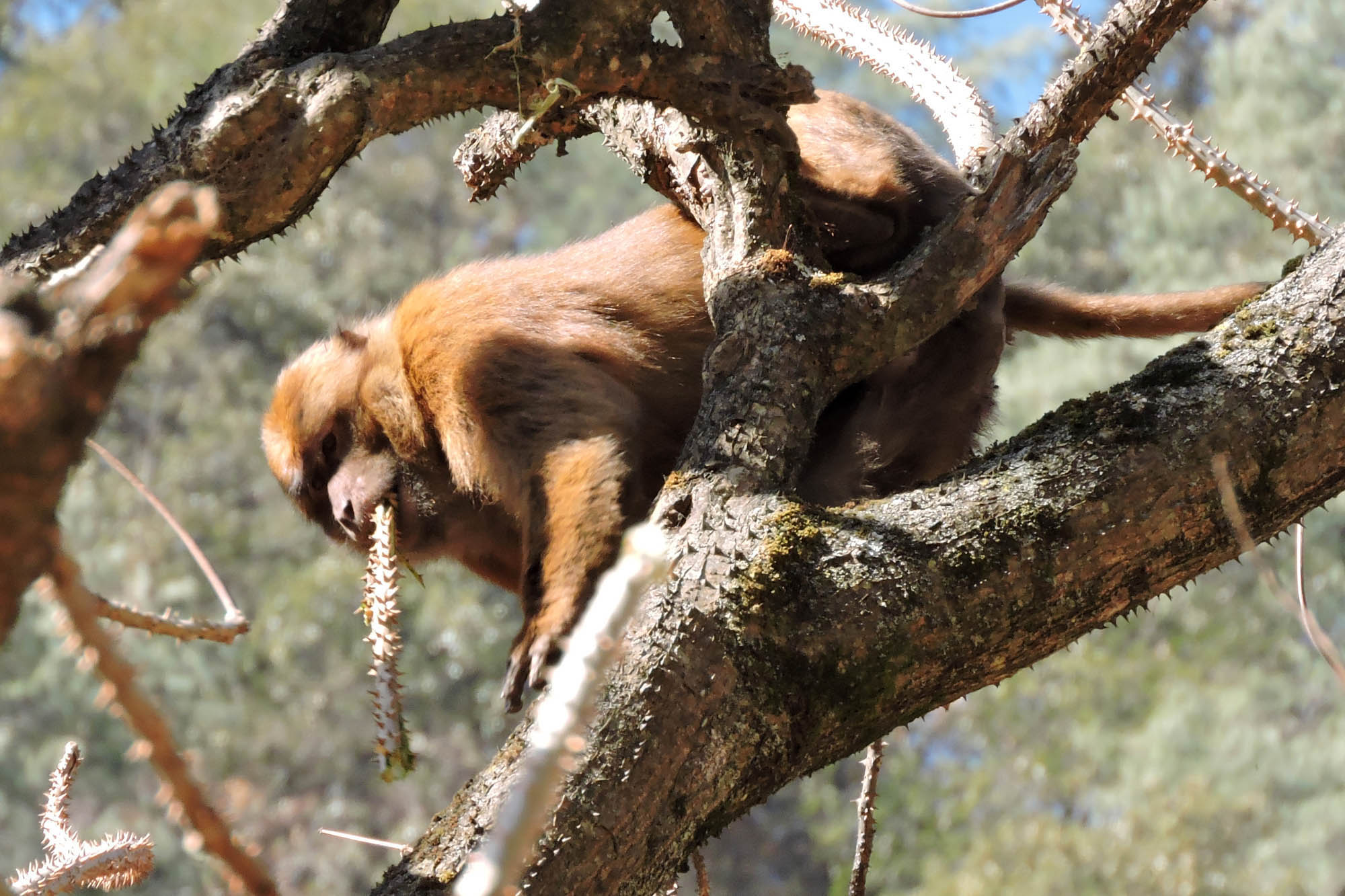

Wild India
Sri Lanka at Night

Mammal Watching
Nestled up against the mighty Himalayan peaks right in the far northeastern corner on India, indeed right at the far-eastern end of little-known Arunachal Pradesh, lies the most biodiverse reserve in all Asia – Namdapha. This extraordinary place is almost completely off the tourist radar as it’s a long way from anywhere and there’s little in the way of facilities. Likely we’ll have it all to ourselves. Which is of course brilliant for mammal watching!
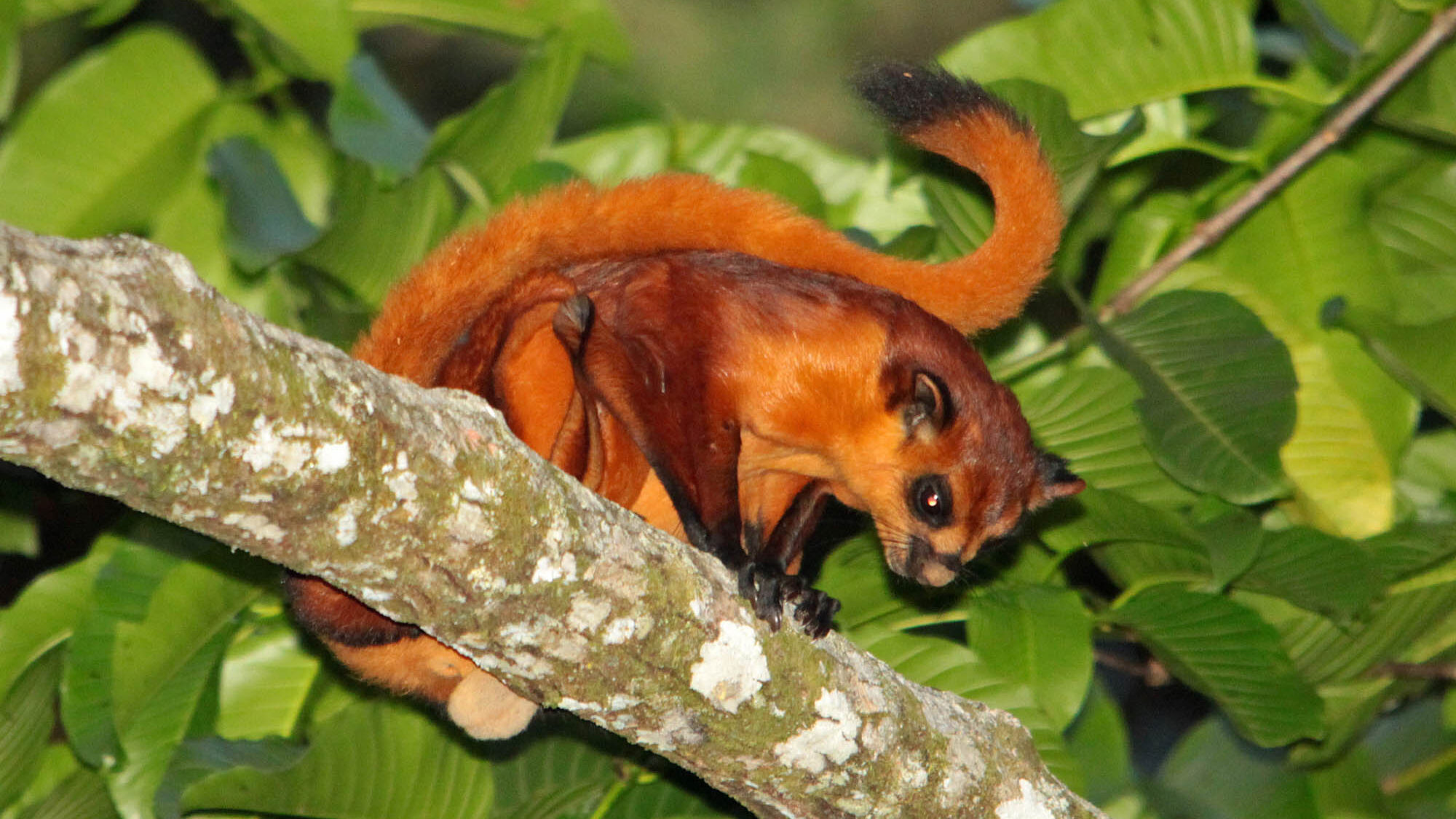
Multiple factors have resulted in the amazing diversity of life found here. There’s a huge altitudinal range so the mountains in the reserve are high enough to support Snow Leopards yet down at base there are Clouded Leopards. In fact there are no less than eight species of cat inside the two thousand square kilometres of protected territory.
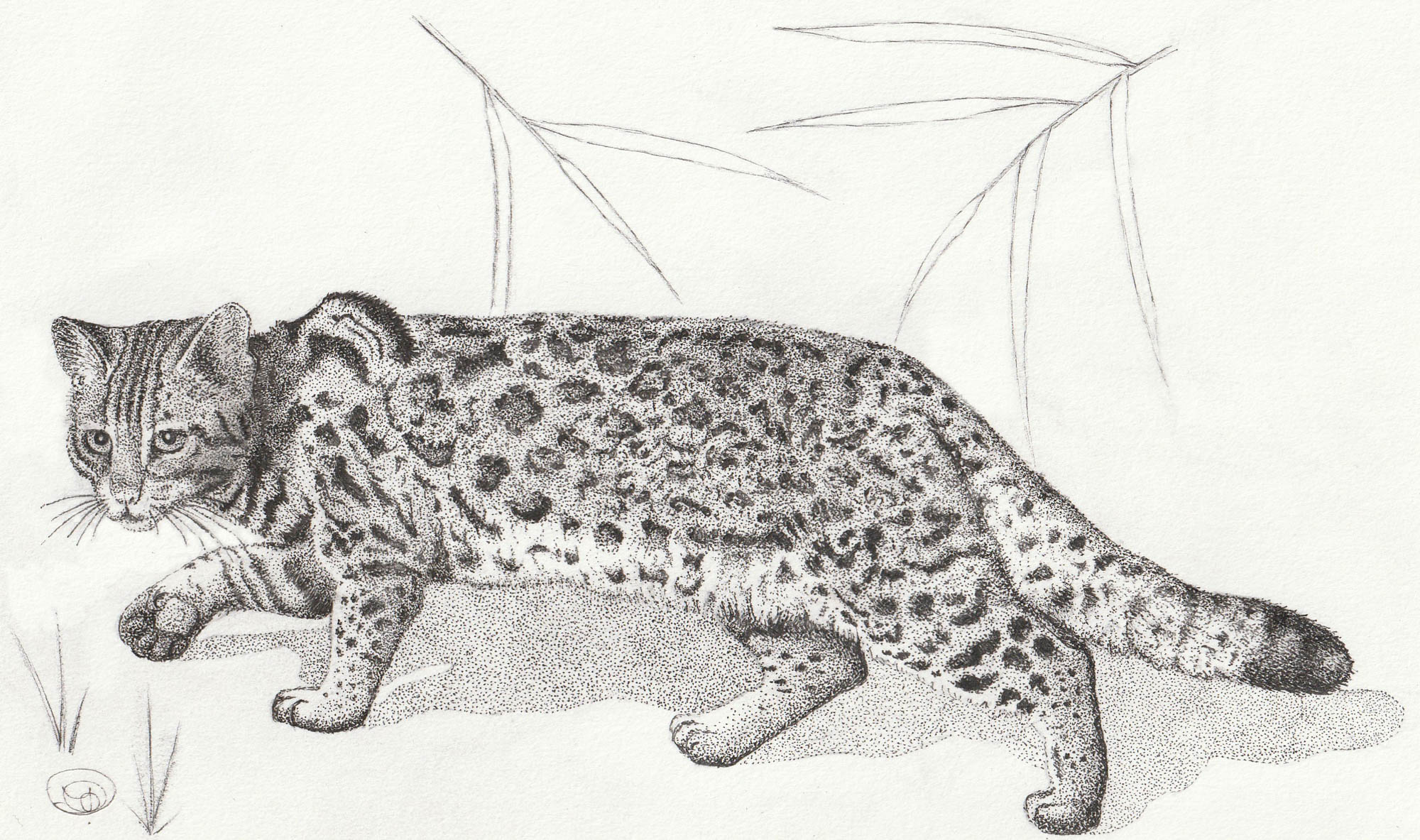
There’s also a tremendous variety of habitats. Tropical and sub-tropical rainforests cloak the slopes either side of the wide river gravels of the Noa Dehing, the main southern tributary of the Brahmaputra, and above are fabulous epiphyte-laden oak woodlands and bamboo brakes, higher still coniferous forest, rhododendron shrubberies and alpine slopes.
There are no roads. Only wide elephant tracks used to trade with villages on the Burmese side of the border. From our base by the main river, hardly far above sea-level, we’ll follow these tracks for several days staying at camps in open glades en route. Distances are not far, but we’ll be on foot, and camping. But the potential rewards are great. We’ll concentrate on the mammals. We’ll camp by some sulphurous mud springs known to be visited by many of Namdapha’s mammals – Gaur, Hog Deer and Wild Boar are all quite common and Himalayan Serow is likely too. Walks from these camps at night will reveal Binturong (we’ve seen the rare tawny phase here), Bengal Slow Loris, Hog Badger, and Hodgson’s Flying Squirrel which are plentiful. We’ll of course be hoping for cats. Marbled Cats particularly like these mid-level forests and we can hope for one of the rarer species too. Also in the hoped for category are Small-toothed and Large-toothed Ferret-Badgers. Every morning we’ll awake to the wondrous chorus of the Eastern Hoolock Gibbons. Daylight will see us searching out Arunachal Macaque, Stump-tail Macaques and elegant Capped Langurs. Himalayan Striped Squirrels and Malayan Giant Squirrel are frequent and we’ll no doubt encounter charismatic Yellow-throated Marten more than once. Up amongst the oak forest where the contorted oaks are festooned in mosses, lichens, ferns and orchids we’ll find various Flying Squirrels, Malay Treeshrew and Leaf Muntjac. Namdapha’s birds are legendary and we’ll see many superb species notably Beautiful Nuthatch, Himalayan Cutia, Red-headed trogon, and a tremendous range of woodpeckers, babblers and laughingthrushes. We’ll spend some time along the rivers too where sightings of Fishing Cat, Crab-eating Mongoose and Smooth Indian Otter are likely.
The second part of the tour takes us into the Mishmi Hills where we’ll explore the largely pristine habitats of the lower Dibang Valley. Around Frogmouth Camp we’ll visit Roing’s grasslands and remote Tiwarigaon where we’ll look for Leopard Cat, Spotted Linsang, Asian Small-clawed Otter, Large Indian Civet and Asiatic Brush-tailed Porcupine. The Mayudia Pass is at 2400m and will give us access to a whole range of species most notably Red Panda. Another special species here is the Red Goral found on the steep hillsides just north of the pass and the smartly-attired Grey-headed Flying Squirrel. We’ll hope to encounter the Mishmi subspecies of Takin and, a little lower down, the local endemic (probably!) Mishmi Hills Flying Squirrel!
Dates and Prices
26th February - 13th March 2025 (16 days)
* doesn't apply if you're willing to share and a room-mate can be arranged
Please note; dates and prices are provisional and will be confirmed by August 2024
Mammals.
Minimum group size is 3 and the maximum is 7.
All flights. Accommodation, transport and meals in India. Services of your leaders. Please note; items of a personal nature including travel insurance, visas, drinks and tips are not included. mammal bird and butterfly checklists are available.
Six nights on this tour we will be camping. In Namdapha we’ll have four nights camping at two campsites – Hornbill and Farm Base. These are nothing more than small clearings in the forest with no facilities. They are in primary forest. And we’ve 2 nights camping close to the Mayudia Pass also in pristine environments. At all these locations we’ll be well-looked after by camp staff who will cook all our meals and move gear between campsites. However the camping is still simple, the tents small (not stand up in) and without campbeds but with camping mats. We’ve three nights in the basic guesthouse at Devan in Namdapha. The guesthouse is set at the start of a large tract of primary forest and is on a little bench raised above the might Noa Dehing river. In the Mishmi Hills we’ve 3 nights at Frogmouth Camp. This, though a ‘camp’, will seem like five-star luxury after our visit to Namdapha! The ‘tents’ are in fact nice rooms with canvas over them. After a night in a hotel in Tinsukia we’ll return to Delhi for the final night at a good quality hotel close to the airport – the same hotel we will have used for the first night of the tour too. All hotel rooms have en suite facilities, and the same applies to Frogmouth Camp. However at the camps there are at best only long-drop loos, otherwise its into the forest…
We’ll be walking some distance between camps in Namdapha up to around 10 km between some of them. We’ll walk between them in the daytime and explore around the camps at night. Otherwise expect distances to be covered on foot not t be great however we might be out for 4-5hours some nights on foot-slowly! We’re not going to be going up endless steep mountains but nonetheless we will be walking uphill steadily at times.
UK flights are direct from London Heathrow to Delhi. From Delhi we have direct return flights to Dibrugarth. Other direct/indirect routes from regional UK and European Airports* to Delhi may be available.
*These routes may incur a supplement
Warm and sunny at lower altitudes, with daily maxima at around 27°C. Night-time temperatures significantly lower perhaps down to around 13-15C at lower altitudes. Camp sites in Namdapha are high so daytime temperatures are pleasant but night-time temperatures can drop to high single figures and in the Mishmi Hills on the Mayudia Pass we can expect it to be decidedly cold with night-time temperatures dropping close to freezing!
Contact us to check if there is availability for the number of places you require. Click on the ‘Book this Tour’ button on this page to be taken to the online booking form or contact us and we will send one to you which you can complete and send back to us. You will receive confirmation of your place, and then a detailed information pack will be dispatched to you about twelve weeks before departure. This will contain up-to-date health information.
